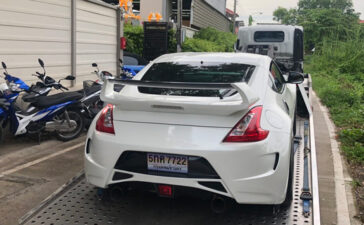Automotive manufacturers are now reevaluating their supply chain strategies, embracing innovative solutions to build a more robust and responsive network.
The automotive sector has historically relied on intricate and sprawling supply chains, sourcing components from various suppliers across the globe. The traditional just-in-time manufacturing model, designed for efficiency and cost-effectiveness, proved vulnerable in the face of unforeseen disruptions. The COVID-19 pandemic, in particular, exposed the fragility of supply chains as factories faced closures, transportation networks were disrupted, and demand fluctuations created challenges for manufacturers.
One of the key strategies in enhancing supply chain resilience is the diversification of suppliers and sourcing regions. Automotive companies are increasingly recognizing the importance of reducing dependency on a single-source supplier. Real-time data analytics enable manufacturers to make informed decisions, anticipate potential disruptions, and optimize inventory levels. Blockchain technology ensures transparency and security in the tracking of components, reducing the risk of counterfeit parts and improving overall supply chain integrity.
Collaboration and communication are integral components of building a resilient supply chain. Automotive manufacturers are increasingly engaging in closer partnerships with suppliers, fostering open lines of communication, and sharing information about production forecasts and inventory levels. This collaborative approach enables faster response times to disruptions, allowing for agile adjustments in production schedules and inventory management.

As the automotive industry embraces the era of Industry 4.0, the integration of smart factories and digital manufacturing further enhances adaptability and responsiveness.
Government policies and incentives also play a crucial role in shaping supply chain resilience. Automotive manufacturers are collaborating with policymakers to create an enabling environment for resilient supply chains. Incentives for domestic production, trade agreements that facilitate the smooth flow of goods, and strategic stockpiling of critical components are among the measures being explored to enhance supply chain stability.
In conclusion, supply chain resilience has become a focal point for the automotive sector, driven by a pressing need to navigate an increasingly volatile and unpredictable global landscape. By diversifying suppliers, embracing technology, fostering collaboration, and integrating advanced manufacturing processes, the automotive industry is charting a course towards a more resilient and responsive future. The transformation of supply chain dynamics is not just a strategic imperative; it is a commitment to driving resilience and ensuring the seamless flow of innovation on the road to the automotive future.










